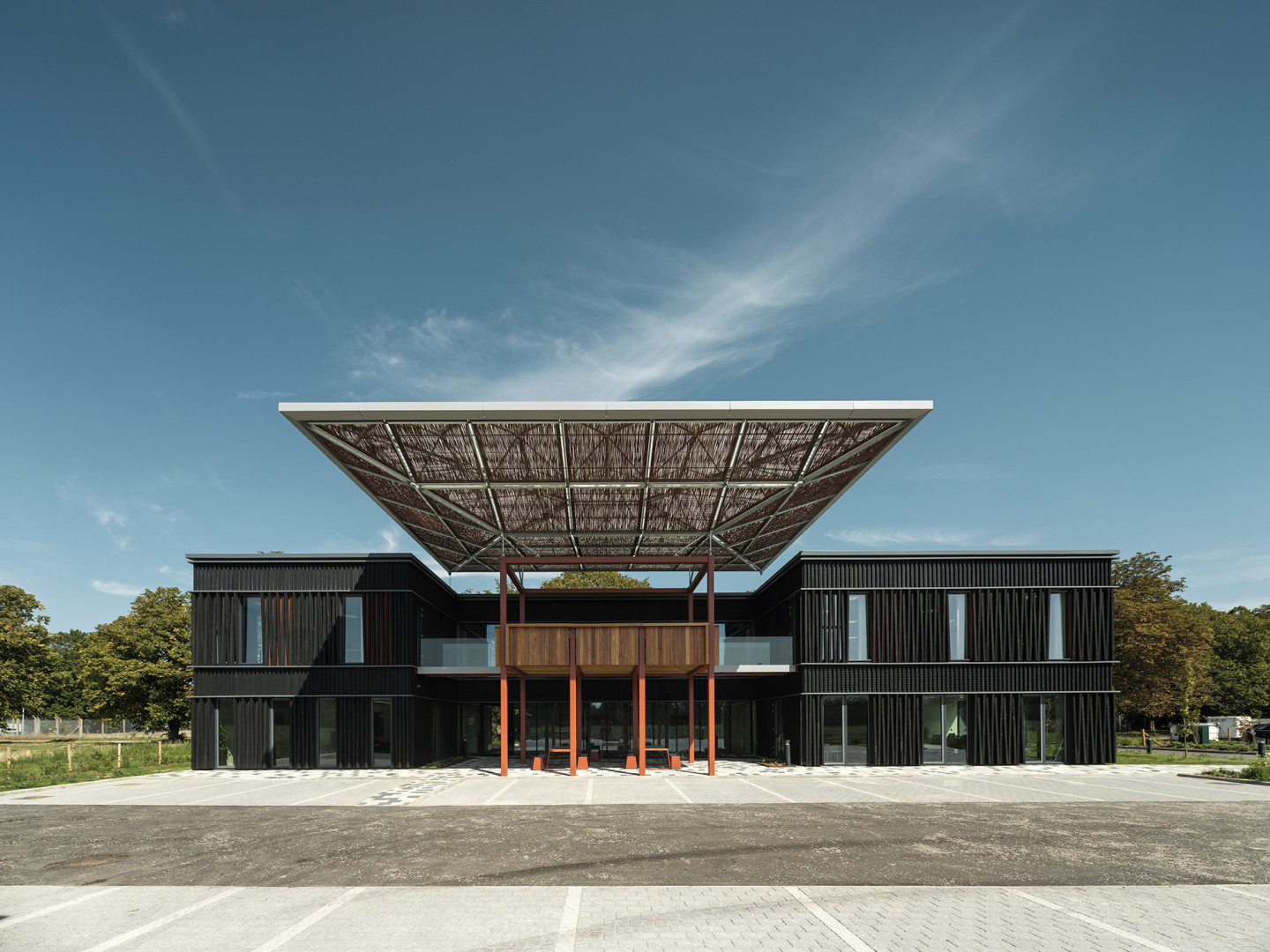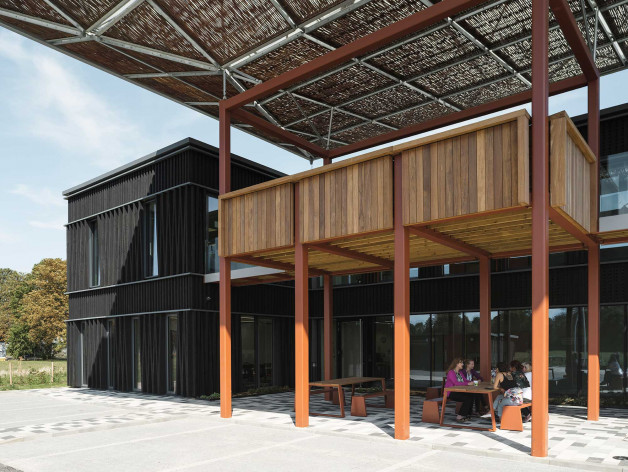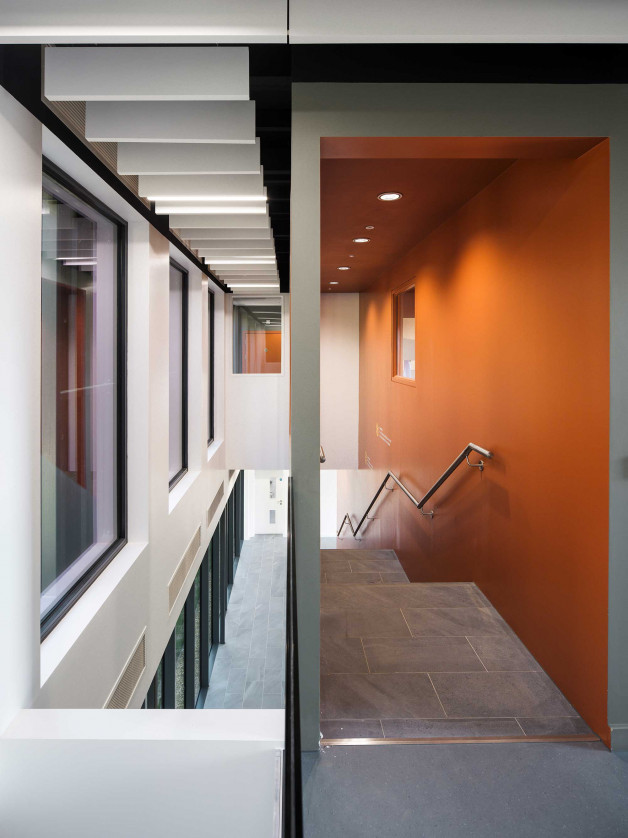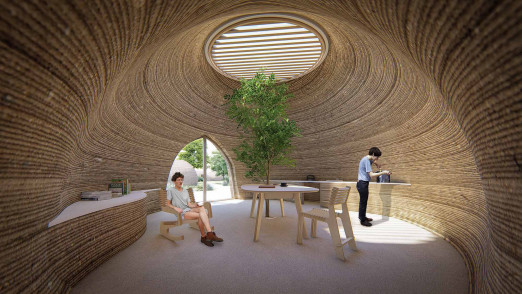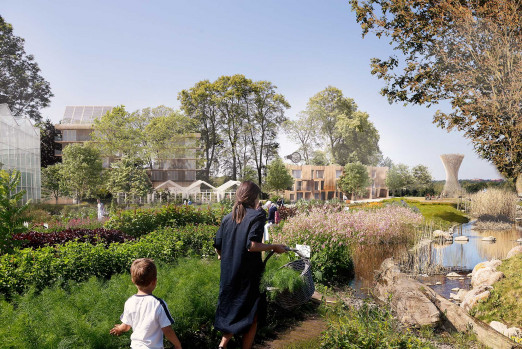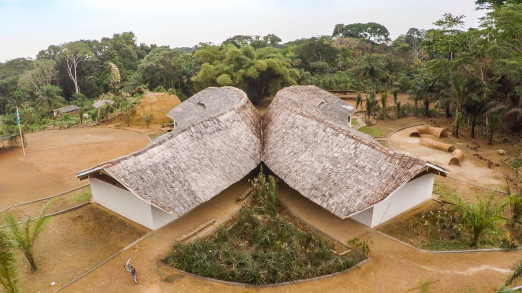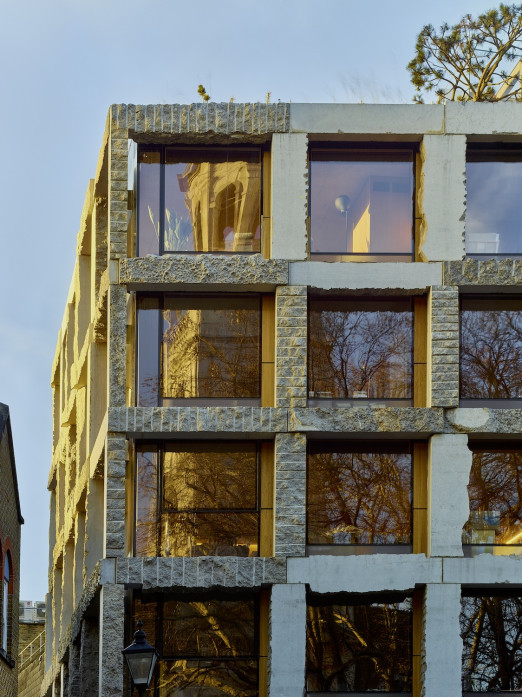The new Cambridgeshire workspace for Homes England by Proctor & Matthews Architects is designed to demonstrate the potential of the very latest in off-site modular construction methods. At the same time, it embodies its unique fenland setting, drawing on local craftsmanship techniques including coppicing and willow hurdle making - balancing preassembled, factory-produced modules with indigenous natural materials.
The 620m2 office and exhibition space forms a flagship venture for Northstowe New Town, which will, on completion, deliver 10,000 new homes for Cambridgeshire, and for which modern methods of construction form a defining feature. As well as celebrating this, the architects were keen to draw on the practice’s interest in building on the history of a site, and its vernacular references, and to demonstrate how modern methods of construction can be harnessed and applied in a highly contextual way, responding to local place and culture.
The architects defined the two-storey U-shaped building with bespoke architectural features including a dramatic 200m canopy roof. While the modular building itself was relatively quick and efficient to build, the canopy was manufactured by local craftspeople using woven willow hurdles – traditionally used as fencing enclosures for centuries or sheep pens – set within steel frames.
The building is clad with Siberian larch, laid to evoke a subtle woven effect, and bring a rich textural character. The black timber references both the region’s weaving heritage and traditional local Cambridgeshire barns and farm buildings. Meanwhile the terracotta tone of the steel framework supporting the canopy references the variety of Roman pottery shards discovered during the extensive archaeological investigations across the site.
The flexible offsite solution for the building, which Proctor & Matthews worked on with construction specialist The McAvoy Group, means that it can be easily re-configured and adapted, giving it a full lifecycle within the town; bringing key government workers to the heart of the site during the development phases, and, on completion, facilitating potential alternative cultural and community uses for the town’s new population. The result is flexible and modern workplace of the future, firmly rooted in its edge of Fenland setting, through traditional materials and finishes.
